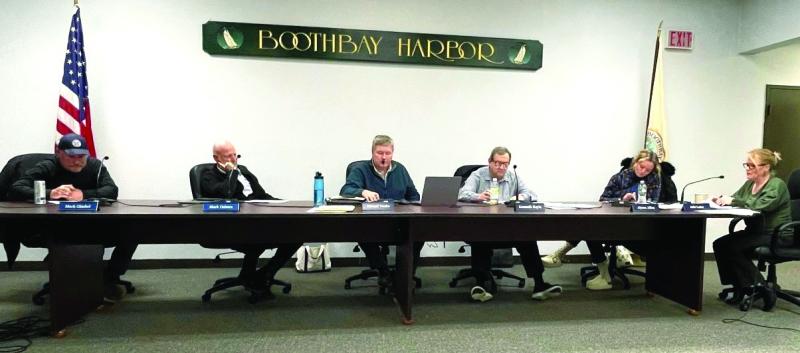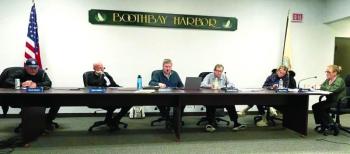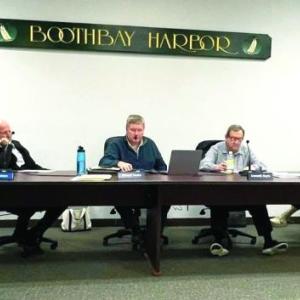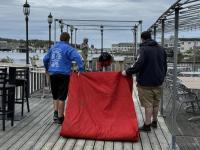Boothbay Harbor selectmen talk potential downtown ordinance changes
Boothbay Harbor selectmen Dec. 9 continued talks about ordinance revisions. They discussed draft proposed changes from lighting unit standards to parking, but most of the focus was on the downtown business zone.
The selectboard talked about what it saw as a need to promote mixed residential and business use downtown. Selectman Ken Rayle brought up reducing dimensional requirements for downtown lots to allow more use. He said the current requirement for non-residential use, 2,000 square feet, "serves no one's interest at all." Selectman Mark Osborn proposed more direct language for mixed-use zoning which he said would encourage business and ease housing concerns. He said the current ordinances also restrict new businesses from having a downstairs front and residential space upstairs, which could be a good model.
“I think what we're trying to accomplish here is to allow a building to have more than one use,” he said. “Most of them (already) do, except if you want to do something new, you can't.”
Rayle also questioned why hotels, motels and inns are not allowed in the downtown business zone. “It’s a trip away from reality,” he said, adding the current ordinance is a disincentive to invest in the business. Osborn, a co-owner of Topside Inn, said the “limitation of 10 rooms is stifling.” He said a business could pay its mortgage with five rooms 10 or 20 years ago, but not anymore. Later in the meeting during public comment, former planning board chair Tom Churchill noted the limitations were to prevent large hotels from taking away space for retail shops downtown.
Osborn also proposed a short-term rental (STR) program to better understand their impact. He said STRs are businesses that benefit from town services and resources but are not subject to the fees, safety rules, or other conditions that other businesses need to abide by. However, he added the town does not have enough information to make recommendations or limitations on STRs, and a registration program would help gather information.
He proposed the program require owners to register their properties and pay a $100 fee for properties rented out for sixth months or more and $195 for properties rented for less than six months. He said year-round rentals should not pay a fee.
In public comment, resident George Craig addressed the board about town fees and shoreland zoning. Craig said because much of the harbor is within the shoreland zone, the town should compare its ordinances to Department of Environmental Protection rules to ensure ordinances are appropriate. Craig also suggested the town raise its threshold for building permits to adjust for inflation and increased costs.
The selectboard discussed other proposed ordinance changes including increasing building heights to 35 feet, restricting commuter parking lots, adopting International Residential Code standards, capping cruise ship activity, standardizing lighting units, creating plan-language ordinance summaries and others.
Town Manager Julia Latter said ordinance changes will be reviewed and refined by the board and town lawyer before potentially going to vote at next year's annual town meeting. The board said the work will dovetail with concurrent efforts around a new comprehensive plan and LD 2003.
In other business, the board approved transferring money from two reserve accounts into expense accounts. Selectmen approved moving around $7,000 first intended for fire department ventilation into a parking expenses account. Latter said the money was no longer needed for the ventilation system and the town would like to buy a new kiosk for the Oak Street lot because the meters are not functioning. In addition, the board approved $500 to go into a capital improvement account from a wayfinding account.


























